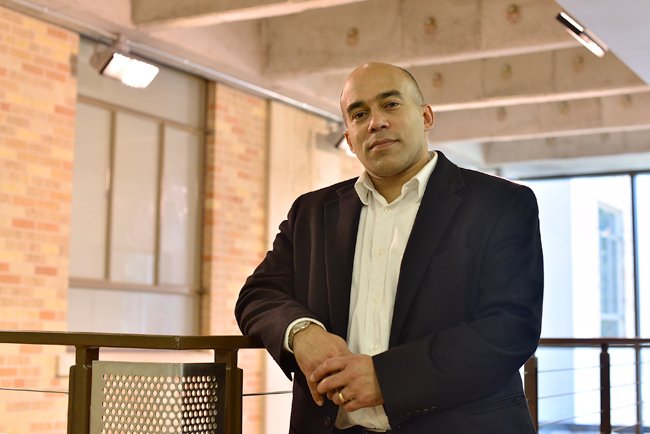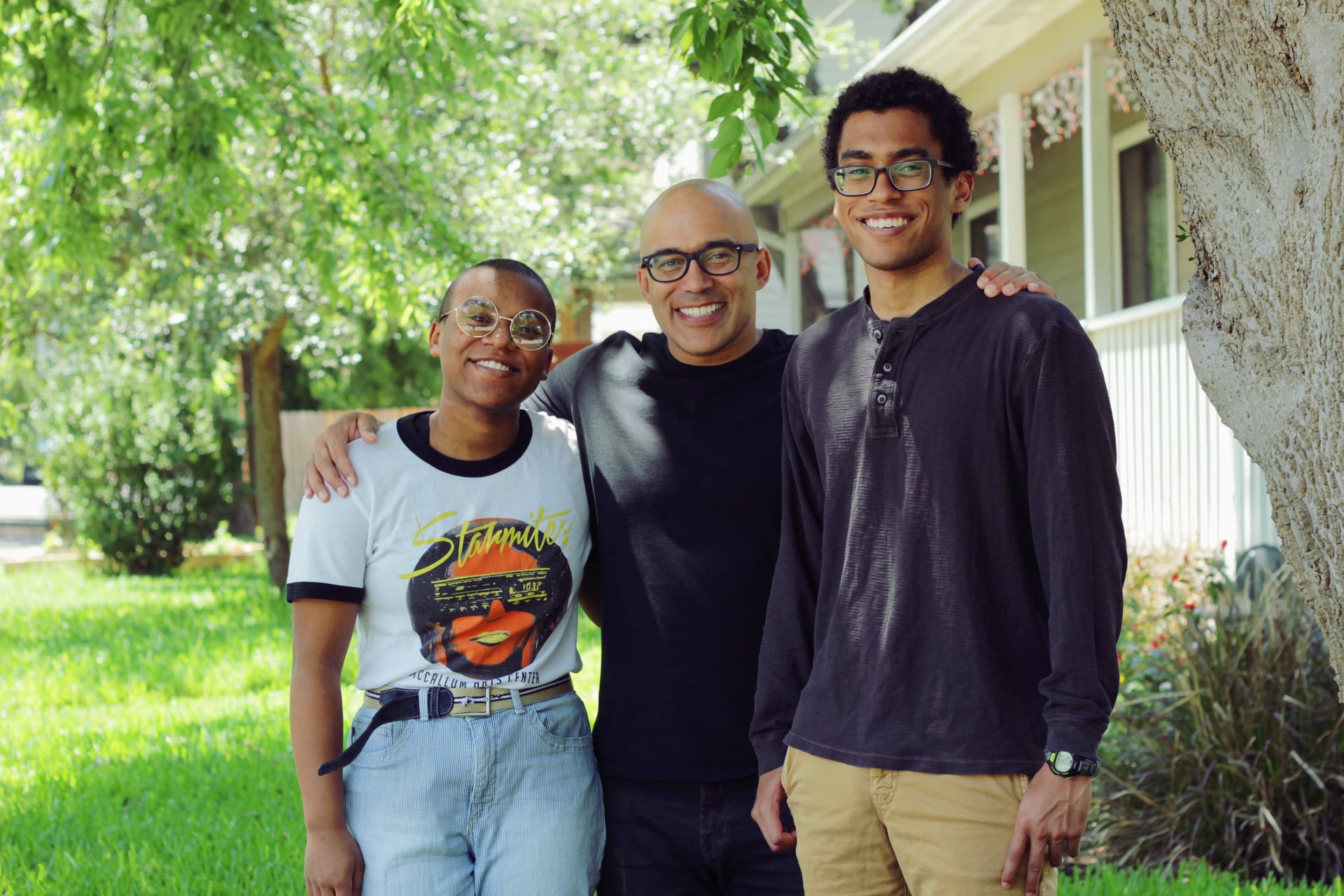Kevin Foster is an educational anthropologist by training, but his career path has taken him many places outside of the halls of the academy. He’s a professor of African and African Diaspora studies, community advocate and mentor. Foster began his career by leading programs to support student achievement and later became an executive branch policy fellow during the Obama administration. In 2013, he created Blackademics Television on PBS, and he now serves on the Austin Independent School District’s Board of Trustees. In this Q&A, he talks about the importance of community-engaged scholarship.
Interview by Dominique Garrett-Scott.
Can you tell us more about yourself and your work and scholarship?
I’m an educational anthropologist by training, and most of my work has had to do with student achievement. What does it look like for all kids to be successful and all kids to be supported when kids come from a wide range of circumstances and backgrounds? As a researcher looking at Black students in high schools and universities, including U.S. born African American students and African students in the U.S., I became interested in being a little more applied and practitioner-oriented. I started student programs that I ran in high schools and middle schools.
I ended up landing a position as an [Obama administration] executive branch policy fellow working with the National Science Foundation. I’m not a math and science guy, but I am a partnerships guy. And I worked in the math and science partnerships program, which gave out hundreds of millions of dollars over time for university/school partnerships to facilitate student success. That work was all about how to be a community-engaged scholar, which I’ve increasingly come to define myself as. So my scholarly rigor remains, but a big part of the work is what it looks like to apply scholarly rigor and analysis to addressing real world challenges. And, in this case, the challenges of student achievement.
How did Blackademics Television come to be?
I started a television show with the same sort of politics. How can we take Black studies scholarship and have that influence public conversation and have it injected into the public sphere? And to counter all the nonsense imagery and faux-analyses out there. We’re doing what is essentially the TED Talks model, but we’re bringing in the best Black studies scholars, whatever their racial background. By bringing in these scholars and partnering with PBS, we’ve done nine seasons of it.
This last season was on Black public health, and we had folks talking about caregivers as unsung heroes. In the context of a pandemic, the folks that can stay at home and hold down the fort while all these crazy things are going on are really important. Other folks talked about the PTSD among first responders and how much all this stuff weighs on emergency room nurses, firefighters, EMS, police, et cetera.
Another person talked about the predictability of where there would be higher rates of spread of COVID. It’s no surprise working-class Hispanics are at greater risk and having higher rates of infection because of the industries in which that population is concentrated. When middle-class and upper-class workers were saying ‘I’m going to stay at home,’ the custodians still had to go in. The construction worker—the construction never stopped. The service workers; their service was still demanded. Which was good from an economic standpoint of their households still functioning, but not so good from the standpoint of likelihood of catching COVID.

Community engagement seems to be central to your work. What role do the university and college have in establishing and prioritizing partnerships within Austin and with community members?
Some might argue that every scholar should be a community-engaged scholar, or should have some aspect of their work that points outward. But I think that we can have a critical mass of scholars who really define their work through that lens.
While everybody should pitch in to some extent, we should create space for faculty who are oriented towards applying their work to service of the broader community. That would mean that your merit raise structures accommodate the idea that some people are going to excel in this area. Promotion and tenure policies would be oriented to recognize folks who are deeply community-engaged. It would mean that when it came to institutional support, there is institutional recognition and support for community-engaged work. In other words, we should be constantly working to develop or reform the structure of the university so that it creates space for faculty who really want to go hard in this direction, in terms of the application of the scholarship.
On the level of the individual scholars, there’s robust literature on this and there are folks who basically can be out there. Maybe the School of Architecture is partnering with the city to reimagine what a 20-square block area is going to look like to meet community desires around the use of space, or maybe other faculty as part of their work are embedded in this particular industry or are in the schools.
If you are a community-engaged scholar, it might be that a big part of your work has to do with building relationships that take years to develop. You have to earn your way into a community. You don’t just say ‘I’m here with my Ph.D., now listen to me.’ Rather, you go in and collaborate in the building of trust, serving a mission.
The university should constantly be thinking about how it structures itself to facilitate this impact; we should be hiring people for it. We should be supporting people in doing it.
What are some of the AADS department’s priorities to help support students in regard to COVID?
Listening to and reaching out to discover student needs, and working to meet those needs in an unconventional moment. And actually, I would put the whole university on that. The university, I think, did really well. Something that happened at the university level that also happened at the more micro level of our department was providing funds.
Our graduate students had their own particular issues and sometimes they were financial, and we would work with others to try to help meet their needs. But sometimes they were about living circumstances and trying to figure out how to keep the trains moving in this moment. And a lot of the student advisors were really great in this, but then at the department level, we were consistently trying to find out what the needs were and then ensure that those needs got met so that our students could persist.
The admissions process during the pandemic was interesting and really successful. We have a lot of great students coming in. We are consistently interested in the professionalization of the students, along with ensuring their academic rigor. We have a professionalization in Black studies course that is one of the core courses. We talk about teaching your first course, writing grants, and assembling committees for your master’s report and for your dissertation work. We talk about the job market, a range of things oriented toward ensuring that the students are not only academically strong, but also have the chops, so that they’re more likely to get the job and more likely to find the hidden spaces of opportunity.
